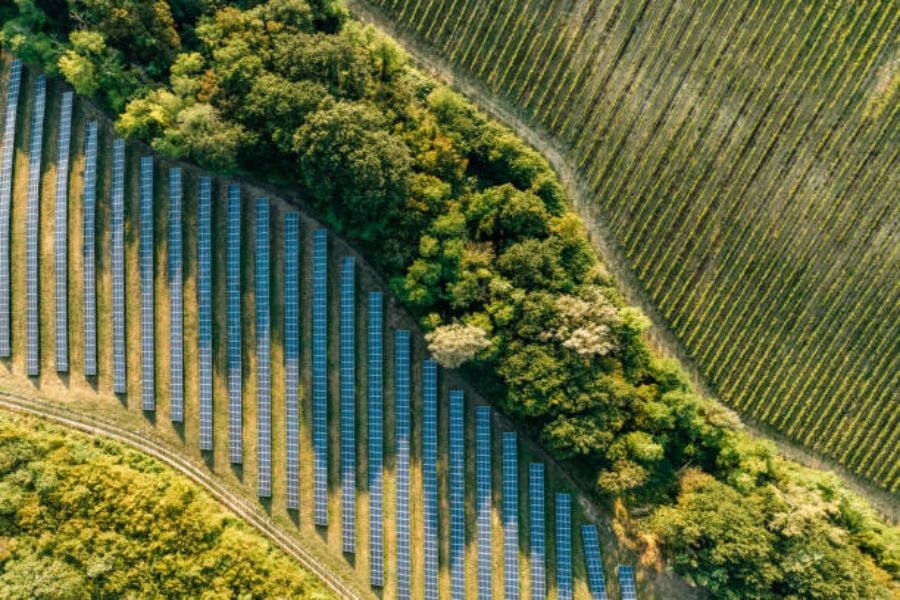The Basics of Solar Panels
Solar panels are devices that convert sunlight into electrical energy. The photovoltaic effect was discovered in 1820, and the first solar panel was developed over a century later in 1954. Since then, solar panels have become increasingly popular and affordable, as the world seeks to move away from traditional fossil fuels.
Monocrystalline Solar Panels
Monocrystalline solar panels are made from a single silicon crystal. They are the most efficient type of solar panel, converting around 22% of the sunlight that hits them into electricity. This is because they are made from high quality, pure silicon. Monocrystalline solar panels are also more expensive than other types.
Polycrystalline Solar Panels
Polycrystalline solar panels are made from multiple silicon crystals. They are less efficient than monocrystalline panels, typically converting around 15% of the sunlight that hits them into electricity. However, they are also less expensive to produce. Polycrystalline solar panels have a blue-ish color due to the multiple crystals that make up the cells.
Thin-Film Solar Panels
Thin-film solar panels are made by depositing one or more layers of photovoltaic material onto a substrate, such as glass or plastic. They are the least efficient type of solar panel, typically converting only around 11% of the sunlight that hits them into electricity. However, they are also the cheapest to produce, and can be made in a range of colors and shapes. Thin-film solar panels have a sleek, modern appearance.
Which Type of Solar Panel is Best?
The best type of solar panel for you will depend on your budget and the amount of space you have available. Monocrystalline panels are the most efficient, but also the most expensive. Polycrystalline panels are a good compromise between efficiency and cost. Thin-film panels are the cheapest, but also the least efficient. Consider your energy needs and budget before deciding which type of solar panel to install.
The Environmental Benefits of Solar Panels
Solar panels are a clean and renewable source of energy. They create electricity without producing any greenhouse gases or air pollution. By installing solar panels, you can reduce your carbon footprint and help contribute to a more sustainable world.
The Economic Benefits of Solar Panels
Solar panels can help you save money on your energy bills. Once you install solar panels, you can generate your own electricity, reducing your dependence on the grid. You may also be eligible for government incentives, such as tax credits or rebates, which can further reduce the cost of installation.
The Future of Solar Panels
As technology improves and costs continue to decrease, solar panels are becoming increasingly accessible to people all over the world. In the future, it is likely that solar panels will become even more efficient and affordable, making them an even more attractive option for homeowners and businesses.
The Installation Process
The installation of solar panels usually involves hiring a professional contractor to assess your home or business and determine the ideal placement for the panels. Once the placement has been decided, the contractor will install the panels and connect them to an inverter, which converts the DC electricity produced by the panels into usable AC electricity.
Maintenance and Upkeep
Solar panels are generally low maintenance, but they do require regular cleaning to ensure maximum efficiency. Most manufacturers recommend cleaning the panels at least once a year, or more frequently if you live in a dusty or humid environment. It is also important to check the panels for damage after severe weather events, such as hailstorms or hurricanes.
In Conclusion
Solar panels are a clean, renewable, and potentially cost-saving source of energy. The three types of solar panels are monocrystalline, polycrystalline, and thin-film. Each type has its own advantages and disadvantages, and choosing the right type for you depends on your energy needs and budget. If you are interested in installing solar panels, be sure to do your research and work with a reputable contractor to ensure a successful installation.

